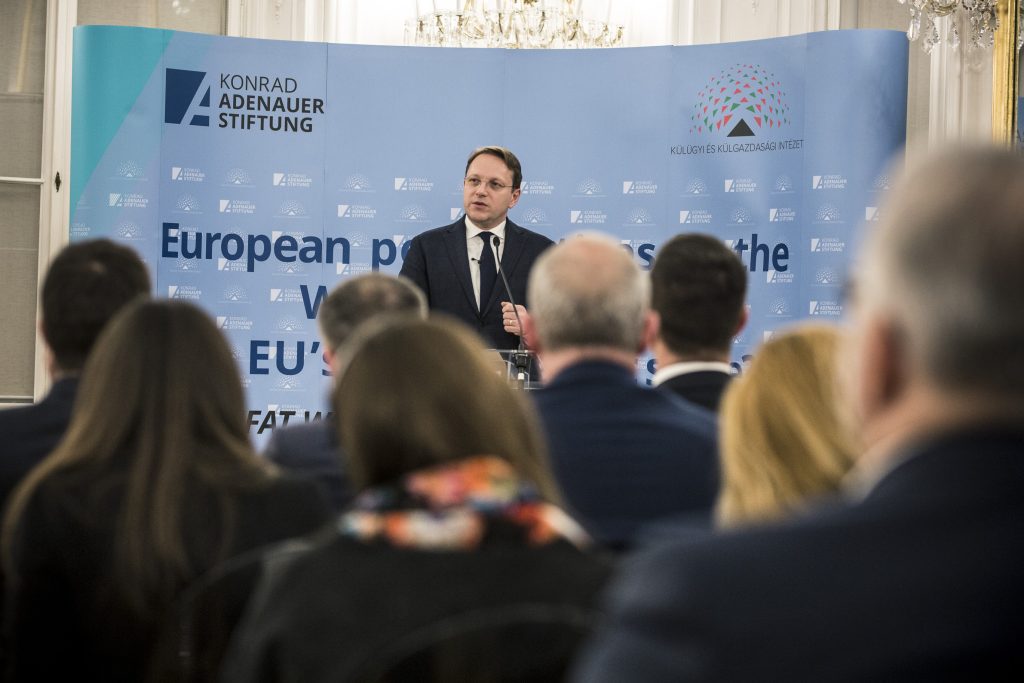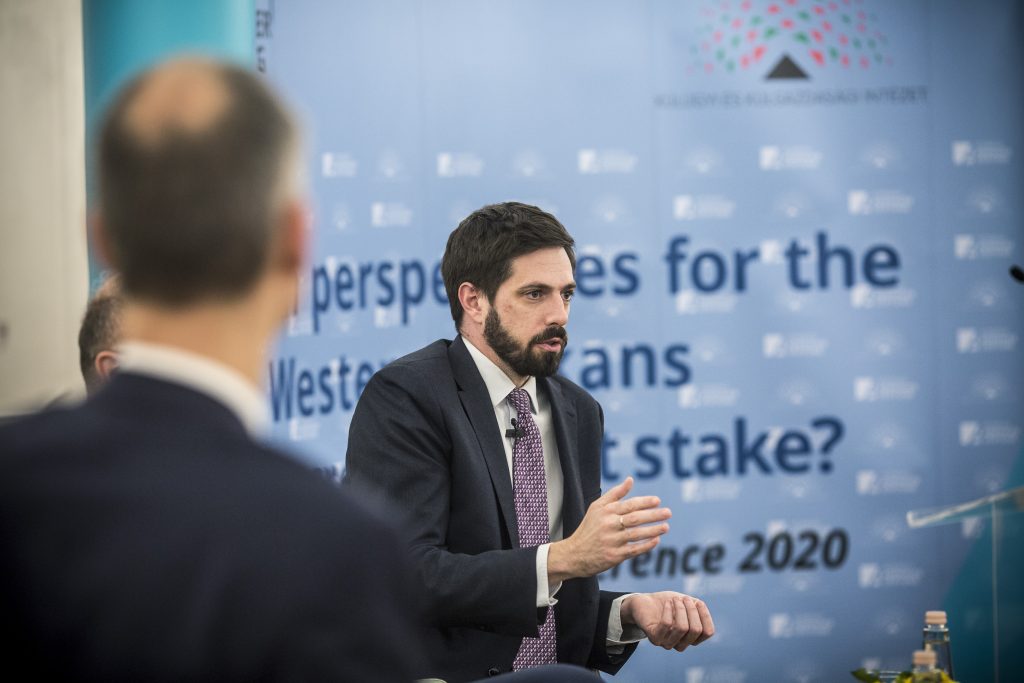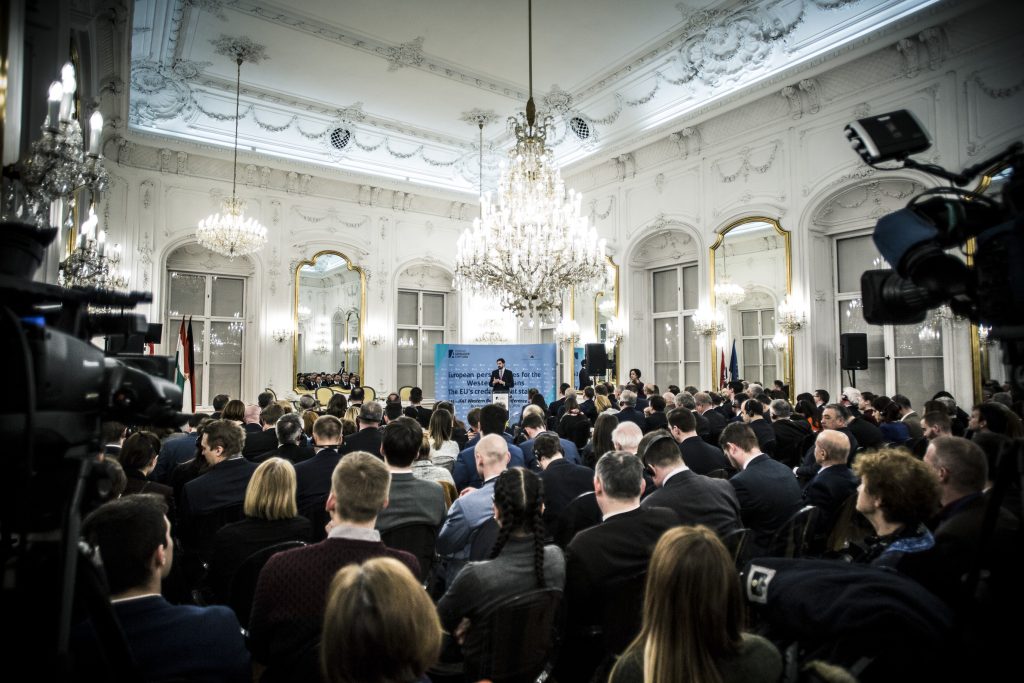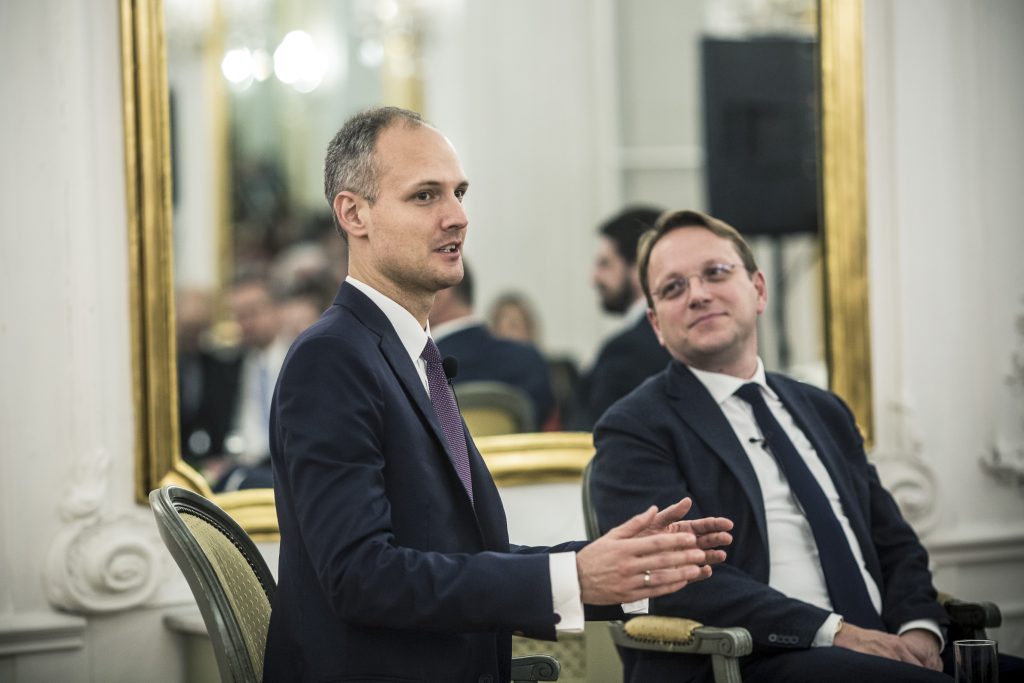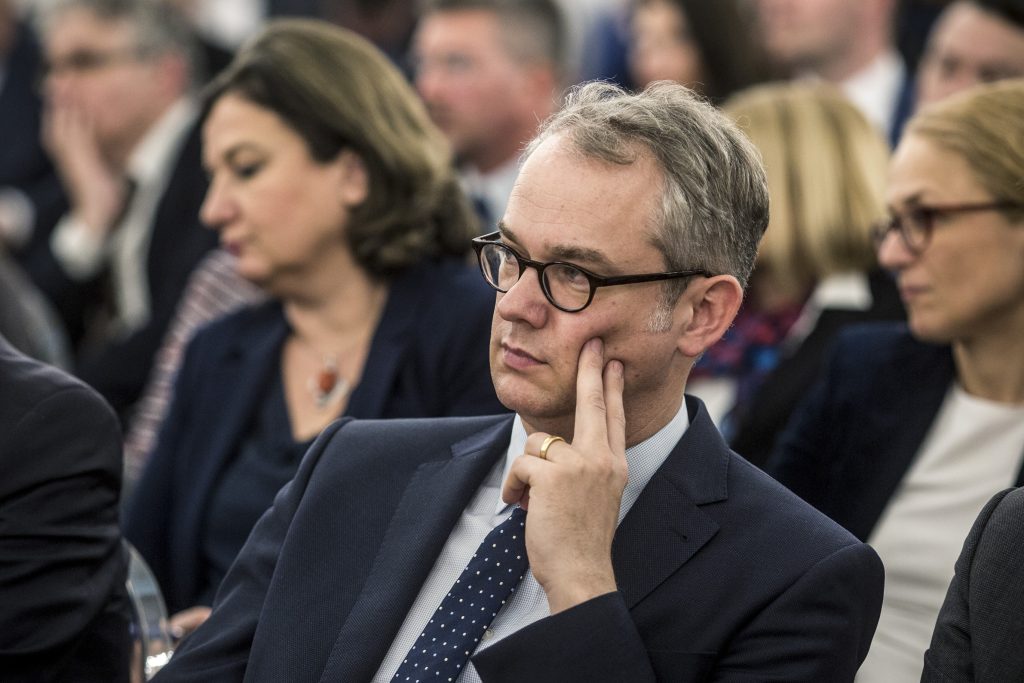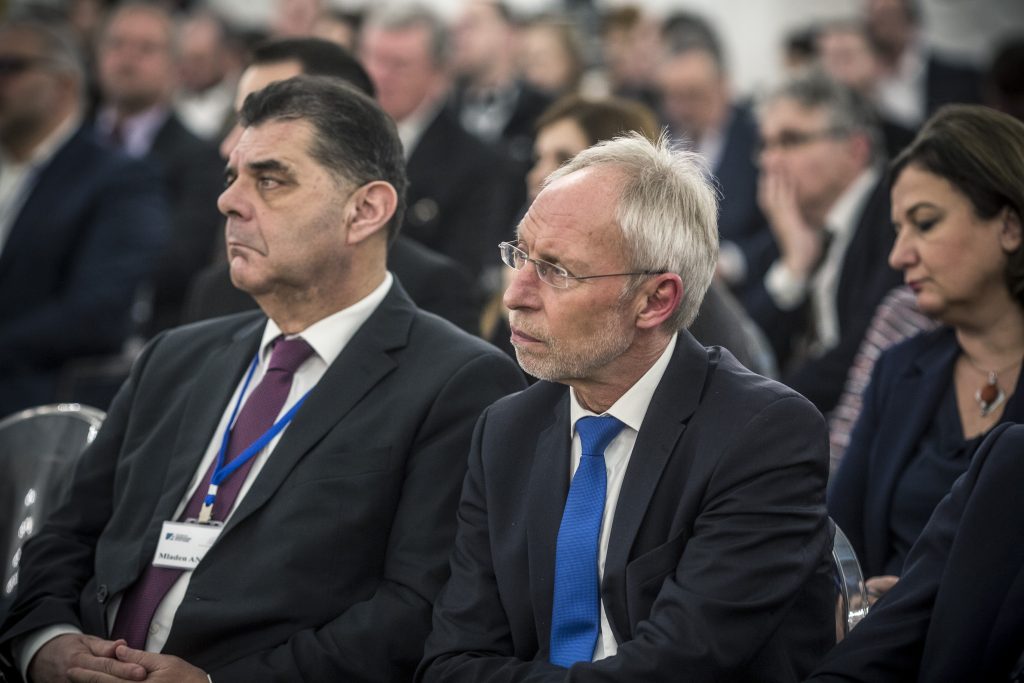On the 27th of February 2020, the Institute for Foreign Affairs and Trade (IFAT) and the Konrad-Adenauer-Stiftung (KAS) held their annual Western Balkans Conference at the Andrássy University Budapest. This year, the event focused on the future of EU enlargement towards the Balkan region. The conference entitled “European perspectives for the Western Balkans – The EU’s credentials at stake?” offered high-level speakers a platform to showcase how their respective country or institution see the future of the European project in the Western Balkans.
Speakers and distinguished guests were welcomed by Anna Orosz, Research Fellow and Program Manager of the Post-Soviet Region and the Balkans from IFAT. She considered the conference timely and special: in recent months, the future of enlargement policy has gone through many obstacles and the fact that high-level speakers would address those challenges and future prospects made the event unique.
In his welcoming remarks, Dr. habil Georg Trautnitz, Vice-Rector of the Andrássy University Budapest expressed his gratitude that the conference took place within the walls of the institution. “In times of uncertainties in the EU, we must always focus on strengthening and deepening relations with our neighbours – these are the principles the university was built on”, he underlined.
Opening remarks by Representatives of IFAT and KAS followed the speech of Vice-Rector Trautnitz. Márton Ugrósdy, Director of IFAT underlined the significance of having a high-level conference about the Western Balkans. “Credibility is important in times of geopolitical race and we must ensure that the Western Balkans is kept close to the EU”, he stressed, also pointing out that the V4 stands united when it comes to enlargement. In his opening remarks, Frank Spengler, Resident Representative of KAS in Hungary highlighted that speeding up accession of the Western Balkan countries is the strategic interest of the EU as it would increase the economy and safety for the entire continent. Accordingly, he expressed the support of KAS towards enlargement based on common interests and shared values.
The high-level panel brought together Levente Magyar, Deputy Minister of Foreign Affairs and Trade of Hungary, His Excellency Gordan Grlić Radman, Minister of Foreign and European Affairs of Croatia representing the Croatian Presidency of the Council of the European Union and Ambassador Olivér Várhelyi, Commissioner for Neighbourhood and Enlargement of the European Commission to discuss the current state of EU enlargement towards the Western Balkans.
“The Western Balkan states belong to the EU and this statement is part of the Hungarian foreign policy discourse”, said Levente Magyar. For Hungary, the region is the key for long-lasting peace and economic development as well as for ensuring that migration would not be a security threat in the future. Central and Eastern Europe needs to be united in issues related to security, economy as well as on the future expansion of the EU, too. Additionally, the region can only be successful if the Western Balkans contributed to achieving these goals. Hungary remains a strong supporter for all countries of the region and will keep supporting the Croatian Presidency, the Deputy Minister stressed.
In his speech, Minister Grlić Radman thanked the constant support of Hungary in times of Croatia’s EU accession process. The Croatian Presidency wishes to keep the same mentality as the Hungarian Presidency represented: to keep enlargement on the agenda and support the further expansion of the EU. “Croatia is the proof that EU membership is possible”, he encouraged the countries of the Western Balkans. For this purpose, the enlargement must be credible from the EU’s side and expectations from aspiring members must be fulfilled. Croatia remains committed as well as thankful for Hungary and for Commissioner Várhelyi’s dedication towards the region.
“It is time to prove that we are a geopolitical Commission and enlargement is one of our priorities”, stated in his speech Commissioner Várhelyi. The proposal for a new enlargement methodology wants to secure these goals as well as it aims at rebuilding trust in Europe. The Commissioner also stressed that the EU still offers full membership to the Western Balkan states and the new methodology will try to energise the accession process. A comprehensive economic plan for the region will also serve as the tool for creating jobs, attracting FDIs and building trust among EU member states and the countries from the Western Balkans. To achieve these goals, Olivér Várhelyi counts on the support of the V4, Croatia and the Croatian Presidency as well as the Balkan countries.
The event continued with a panel discussion moderated by Márton Ugrósdy. Levente Magyar strongly believed that Hungary is a credible partner in the eyes of the Western Balkan states and Budapest would do anything it can to bring new life into the accession process. Minister Grlić Radman added that enlargement is highly beneficial for both sides and that the Croatian Presidency would work tirelessly to ensure progress for all countries in the region by the time of the Zagreb Summit in May. Lastly, Commissioner Várhelyi said that the new methodology could be a great tool for achieving the Croatian Presidency’s goals and the EU must also focus on changing the perception of the public concerning enlargement and the Western Balkan states.
The conference concluded with an agreement between the panellists: the integration of the Western Balkans is of high importance for Hungary and Croatia, for the Croatian Presidency as well as for the European Commission. Enlargement must continue to ensure a stronger and more predicable Europe.
